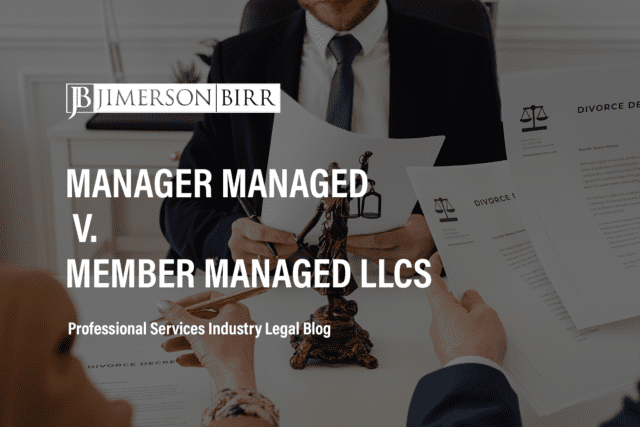Choosing the Right Business Entity
Under Florida asset protection law, what does choosing the right business entity entail?
Choosing the right business entity in Florida involves assessing various legal structures to minimize taxes and maximize creditor protections. Selecting the right business entity should consider factors such as taxation, liability protection, and management structure. In the context of asset protection law in Florida, this may include evaluating structures such as limited liability companies (LLCs), corporations, and partnerships. Each entity type offers different advantages and disadvantages regarding taxes and creditor protections.
For example, a Florida LLC provides pass-through taxation, meaning that the profits and losses are reported on the owner’s tax return, potentially reducing overall tax liability. Additionally, LLCs offer strong liability protection, as they separate the owner’s assets from those of the business, limiting their exposure to creditors
Alternatively, a corporation may provide additional tax benefits and liability protection, requiring more complex management and increased regulatory compliance.
Need help with a matter relating to choosing the correct entity? Schedule your consultation today with a top asset protection attorney.
Which asset protection laws and regulations relate to choosing the right business entity in Florida?
In Florida, several laws and regulations guide entrepreneurs in choosing the correct business entity for their specific needs, including the following:
- The Florida Business Corporation Act outlines the rules and regulations governing corporations.
- The Florida Revised Limited Liability Company Act governs LLCs.
- The Florida Revised Uniform Partnership Act and the Florida Revised Uniform Limited Partnership Act regulate Partnerships.
Additionally, federal tax laws, including the statutes composing the Internal Revenue Code, play a significant supplemental role in the taxation of various business entities.
What are common issues regarding choosing the right business entity that lead to asset protection litigation?
The following issues are among the most common in actions regarding choosing the correct entity in asset protection law matters
- Inadequate separation of personal and business assets: This issue can arise in corporations, LLCs, and partnerships. A failure to maintain separate finances can lead to a piercing of the corporate veil, making owners personally liable for business debts.
- Disputes over business structure: Disagreements among partners, members, or shareholders regarding the chosen business entity can lead to litigation. This issue can arise in corporations, LLCs, and partnerships.
- Tax compliance issues: Businesses of all types, including corporations, LLCs, and partnerships, can face litigation due to non-compliance with federal and state tax laws. Businesses must stay updated on tax laws and regulations to minimize tax liabilities and avoid penalties or legal action.
- Breach of fiduciary duty: Directors, officers, and partners in corporations, LLCs, and partnerships have fiduciary responsibilities to the business and its stakeholders.
When a set of facts meets the requirements of asset protection litigation, there are many paths a claimant may take. We are value-based attorneys at Jimerson Birr, which means we look at each action with our clients from the point of view of costs and benefits while reducing liability. Then, based on our client’s objectives, we chart a path forward to seek appropriate remedies.
To determine whether your unique situation may necessitate litigation, please contact our office to set up your initial consultation.
What strategies should a business implement to minimize the risk of litigation over choosing the right business entity?
To minimize the risk of litigation over choosing the right business entity, corporations, LLCs, and partnerships should consider the following strategies:
Corporations:
- Maintain accurate records: Proper record-keeping, including board meeting minutes, financial statements, and shareholder agreements, helps demonstrate compliance with corporate formalities and can help avoid disputes.
- Educate directors and officers about their fiduciary duties: Understanding their obligations to act in the corporation’s best interests can prevent breaches of fiduciary duty that may lead to litigation.
- Establish clear governance policies: Implementing well-defined policies and procedures for decision-making and dispute resolution can help prevent internal conflicts.
LLCs:
- Draft a comprehensive operating agreement: A detailed operating agreement outlining LLC members’ rights, responsibilities, and obligations can help prevent misunderstandings and disputes.
- Comply with state filing requirements: Ensure annual reports and other required filings are submitted on time to maintain the LLC’s good standing and liability protection.
- Separate personal and business finances: Maintaining different bank accounts and avoiding commingling of funds can help protect the LLC’s limited liability status.
Partnerships:
- Draft a partnership agreement: A written partnership agreement detailing each partner’s roles, responsibilities, and profit-sharing arrangements can help avoid conflicts and misunderstandings.
- Establish dispute resolution mechanisms: Including provisions for resolving disputes through mediation or arbitration in the partnership agreement can help minimize litigation.
- Regularly review the partnership agreement: Periodically reviewing and updating the agreement can help ensure that it reflects the current state of the partnership and its goals.
Frequently Asked Questions
- Can I change my business entity type after formation?
Yes, it is possible to change your business entity type after formation. However, the process, called conversion or reorganization, can be complex and may have tax implications. Therefore, consulting with legal and tax professionals before making any changes is advisable. - How does choosing the proper business entity impact asset protection?
The choice of business entity affects asset protection by limiting business owners’ liability. For example, corporations and LLCs offer limited liability protection, meaning the owners are generally not personally liable for business debts and liabilities. In contrast, general partnerships do not provide limited liability protection, potentially exposing partners’ assets to business liabilities. - Are there tax advantages to choosing one business entity over another?
Yes, different business entities are subject to different tax treatments. Corporations may face double taxation, where the corporation pays taxes on its income, and shareholders pay taxes on dividends. LLCs and partnerships typically have pass-through taxation, meaning profits and losses are passed through to the owners, who report them on their tax returns. However, LLCs can also choose to be taxed as corporations. It is essential to consult with a tax professional to determine the most tax-efficient structure for your business.
Have more questions about an asset protection-related situation?
Crucially, this overview of choosing the correct entity does not begin to cover all the laws implicated by this issue or the factors that may compel the application of such laws. Every case is unique, and the laws can produce different outcomes depending on the individual circumstances.
Jimerson Birr attorneys guide our clients to help make informed decisions while ensuring their rights are respected and protected. Our lawyers are highly trained and experienced in the nuances of the law, so they can accurately interpret statutes and case law and holistically prepare individuals or companies for their legal endeavors. Through this intense personal investment and advocacy, our lawyers will help resolve the issue’s complicated legal problems efficiently and effectively.
Having a Jimerson Birr attorney on your side means securing a team of seasoned, multi-dimensional, cross-functional legal professionals. Whether it is a transaction, an operational issue, a regulatory challenge, or a contested legal predicament that may require court intervention, we remain a tireless advocate every step of the way. Being a value-added law firm means putting the client at the forefront of everything we do. We use our experience to help our clients navigate even the most complex problems and come out the other side triumphant.
If you want to understand your case, the merits of your claim or defense, potential monetary awards, or the amount of exposure you face, you should speak with a qualified Jimerson Birr lawyer. Our experienced team of attorneys is here to help. Call Jimerson Birr at (904) 389-0050 or use the contact form to set up a consultation.

We live by our 7 Superior Service Commitments
- Conferring Client-Defined Value
- Efficient and Cost-Effective
- Accessibility
- Delivering an Experience While Delivering Results
- Meaningful and Enduring Partnership
- Exceptional Communication Based Upon Listening
- Accountability to Goals











